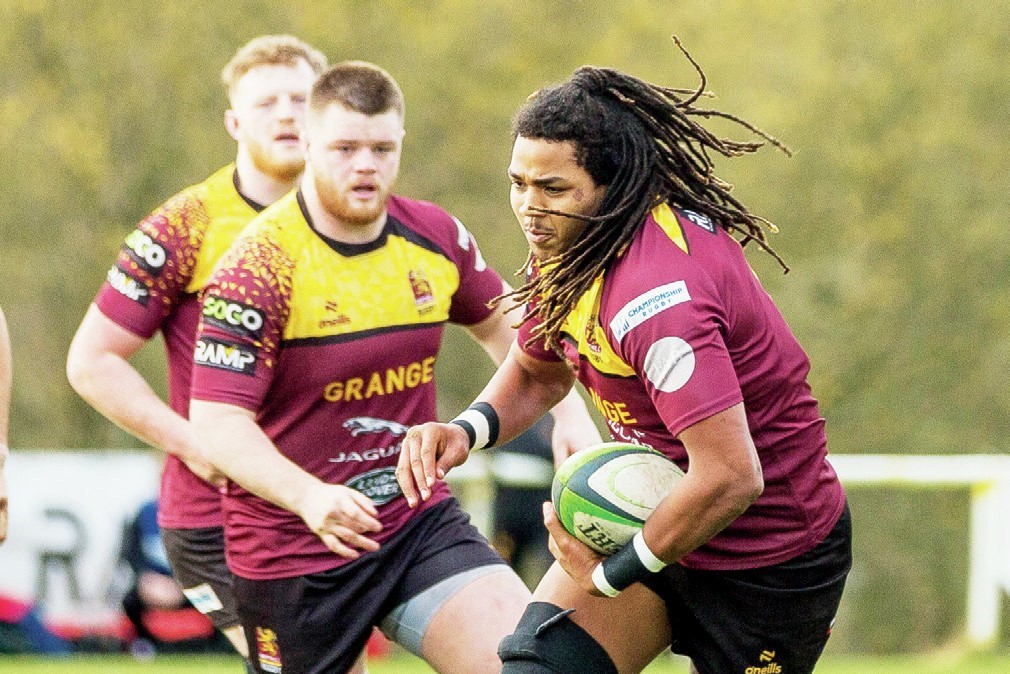Bring back rucking and kill the jackal

Coach to coach
Former Richmond director of rugby Steve Hill puts the questions to Paul Turner, below, coach of Championship club Ampthill RFC
Why did you get into coaching rugby and how did you arrive at your current position?
I was introduced to coaching while still playing. I began as player/coach at Newport RFC in 1990 and did the same role at Sale FC between 1992-96 and then Bedford Blues between 1996- 98. I also had coaching spells at Saracens, Rugby Lions, Gloucester, Harlequins, Dragons and Wasps between 1998-2012, and I arrived as head coach at Ampthill in 2012.
How would you describe your style of coaching?
When I started I very ‘hands on' and ‘old school,' now much more observing and watching. I need to give our good young coaches their time. I remain very forward thinking, creative and passionate about what I do. It means a lot.
What do you find the most challenging aspects of coaching?
I get frustrated with going over the same things weekly. Players are different these days; some listen and don't hear, some hear and don't listen. Selection can be testing. Discussing with players who you've not picked is never easy. You can only be honest with your opinion and use evidence.
As a coach with huge experience what positive and negative changes have you seen in your role as a coach over the years?
The positives are that the game is cleaner, skill levels are better, and playing surfaces/stadia are generally much better suited for the game and the spectator. The negative is too many players in match day squads. They need to be cut to 20, with a bench consisting of two front row, one back row and two utility backs. evidence.
What is your process for evaluating and providing feedback to your players?
As we still train only two or three nights per week our feedback with players can be very brief individually but more regular with unit groups.
We use WhatsApp groups to provide players with extra relevant information. This helps us to streamline our clarity of message to players. 4-6 hours per week is not a great deal of time with the players as most of our players still have day jobs.
I find our time out on the field is more productive.
What role and structure should the Championship have going forward?
The Championship has been a robust league which has provided players the opportunity to develop. It has played an important role for both players and coaches honing their skills at a decent level. This can help them achieve Premiership/international status. That should not change. Proper funding needs to be determined and delivered to further help the process.
Has anyone been an adviser/mentor/inspiration on your coaching journey and how has that helped?
I've been very fortunate to have a great many friends who still keep in touch with advice and encouragement. Keith Westwood, Garry Mustoe, Dennis Hughes, Clive Davis, Spikey Watkins, John Kingston and Paul Evans, all great rugby men.
So far what would you count as your most significant coaching achievement and why?
Helping teams and players improve and achieve success, this has always been a personal satisfaction.
Name a player who you have really enjoyed coaching/developing and why?
I've always enjoyed seeing smart talented rugby players. I like the ‘wow' factor players such as; Will Greenwood, Mikey Rayer, Jos Baxendell, Junior Paramore, James Simpson-Daniel, Dimitri Yachvili, Andy Gomarsall.
You simply didn't need to coach them.
Of late there have been a lot of negative comments around rugby. In contrast what do you see as the positives?
It is still a great game. I have been involved in rugby for nearly 60 years, as a junior, spectator, player and coach and would not know what to do without it. It's a great game where you help create great memories and lasting friendships.
As a coach what two laws or aspects of the game would you change to make it a better experience for either yourself or your players?
First, from a penalty between 22's, if kicker kicks ball out on full his side do not get throw at resulting lineout – this should encourage tap and go and speed the game up.
And second, ban the ‘jackal' and re-introduce ‘rucking'.
What two words would your current or previous players use to describe you as a coach and why?
Passionate – I care for the team – and tactical – I love smart play.
What advice would you give to anyone considering or just starting to get involved in coaching rugby?
You have got to love the game. If you do not, coaching will not be for you.